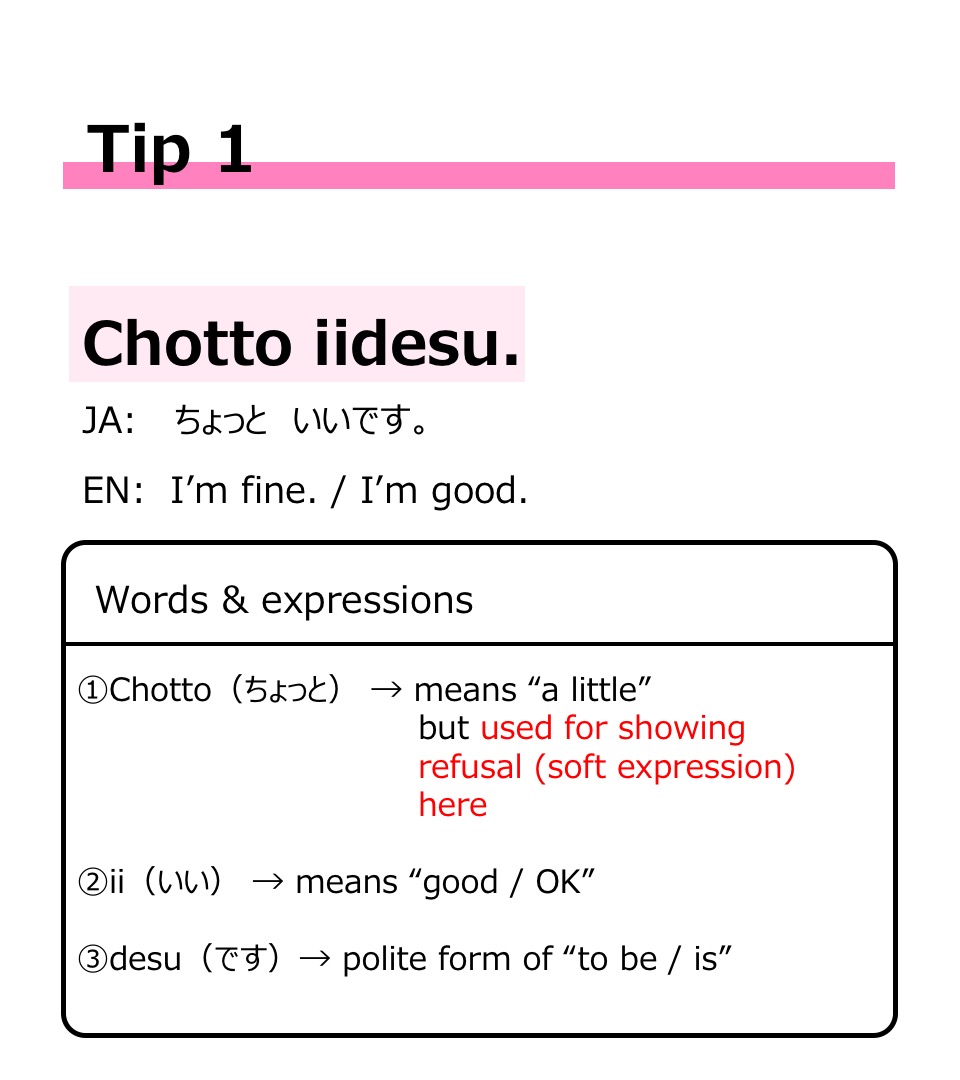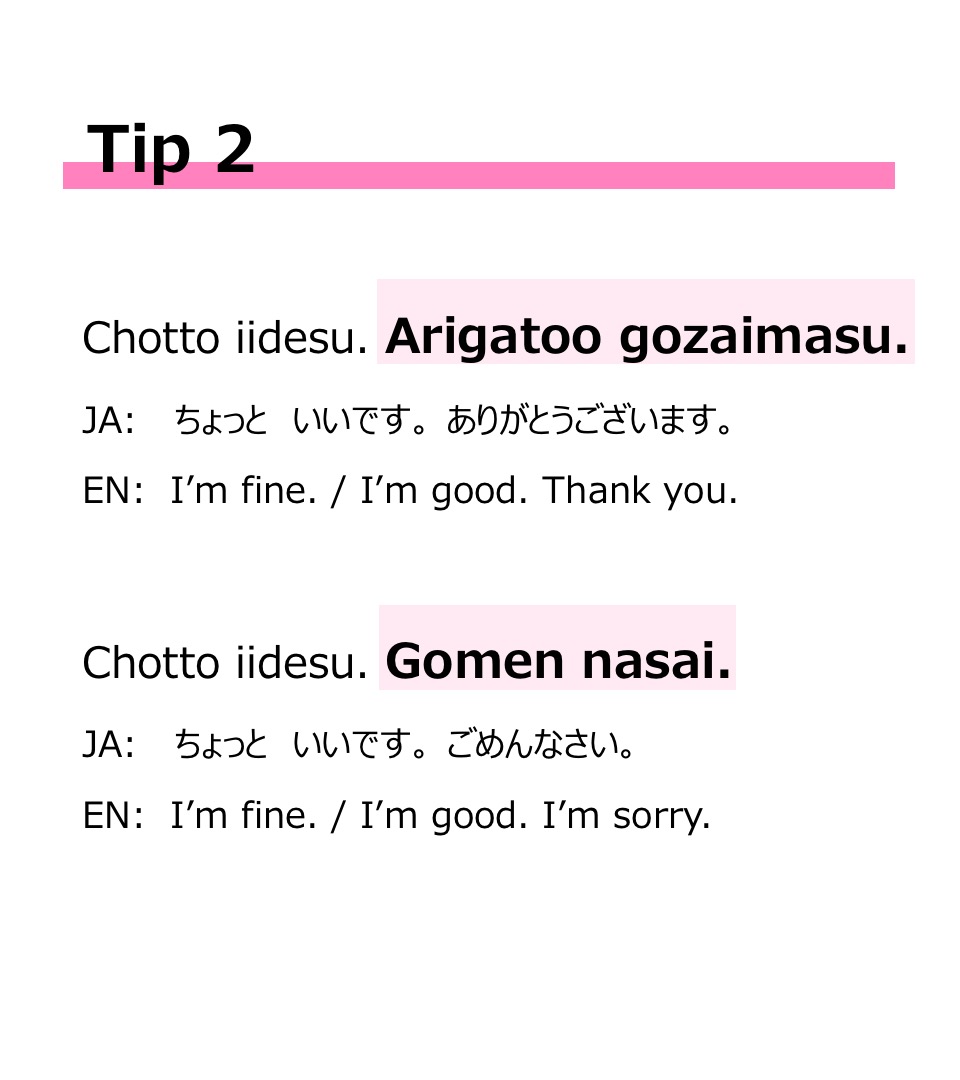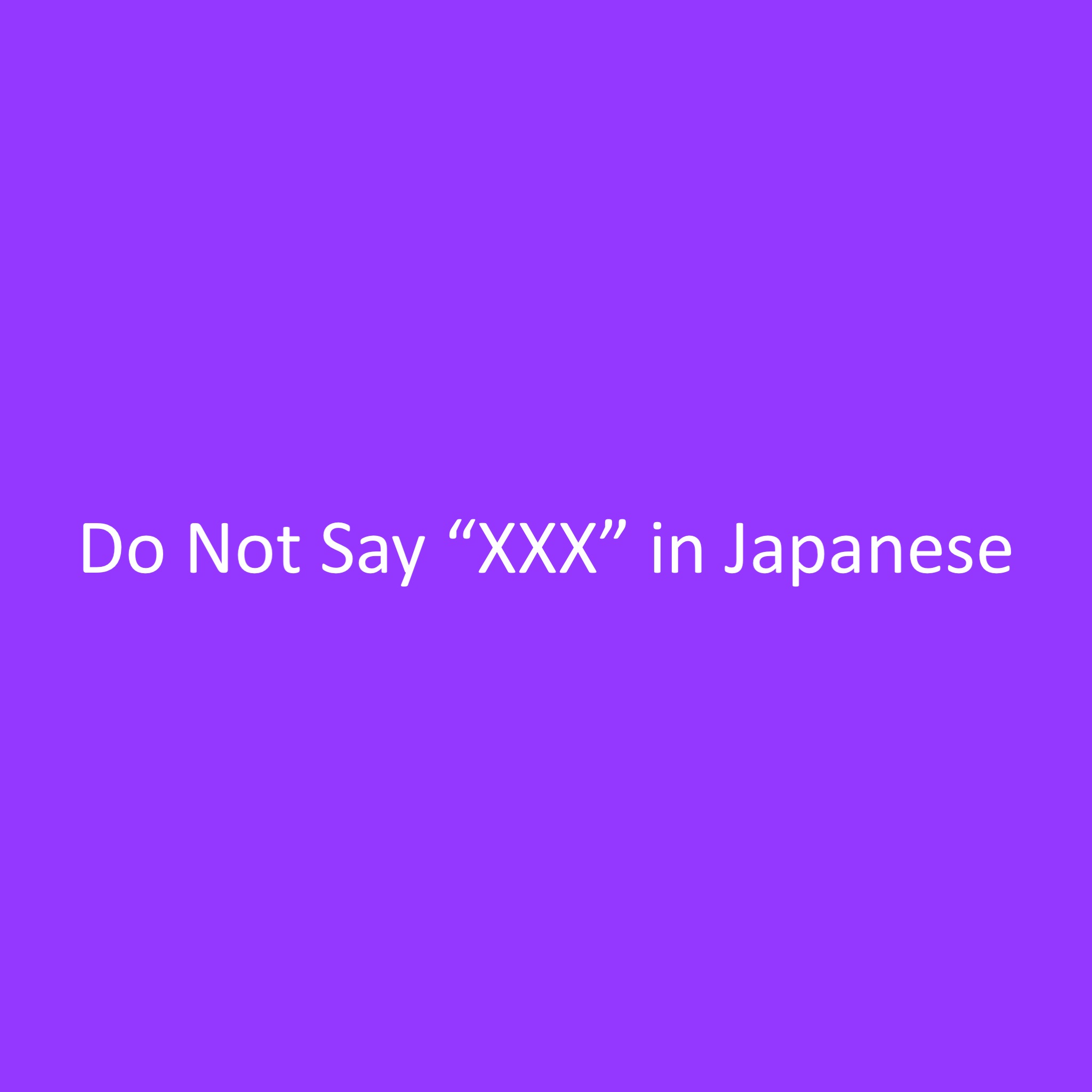There are some cases in which your Japanese accidentally sound rude.
I will introduce one of the example of this mistake, and tell what you should say instead!
Let’s say if somebody offer you a cup of coffee, you can easily speak like “No, thank you.” in English, right?
However, it is not natural to say “No, thank you.” in Japanese actually.
A literal translation of “No, thank you.” is
“いいえ、結構です。(Iie, kekkou desu.)” in Japanese.
but Japanese hardly use this phrase when we refuse something politely.
Because this phrase is too straight forward and sound cold expression.
Especially when we talk to friends, we never use “いいえ、結構です。(Iie, kekkou desu.)” as refusing phrase. It’s too chilly.
By the way, only “いいえ (Iie)” is not common use for refusal actually.
It’s still too straight forward.
So how should we refuse without being rude or cold?
Instead of saying “いいえ (Iie)” which is negative way, we often use positive way. I mean we refuse very softly.
Positive way means, it’s kind of “I’m fine” or “I’m good” in English.
OK finally!! Let’s talk about how to say “No” in positive way.
Let me start with this Tip.
The easiest phrase for “I’m fine” or “I’m good” is this!
What does “ちょっと (Chotto)” mean?
“ちょっと (Chotto)” means “a little”, however, it doesn’t exist as “a little” in this sentence. It is used for showing your refusal here.
If Japanese people hear “ちょっと (Chotto)” from you after they recommend something to you or invite you to something, they would understand you don’t want to accept it.
I mean, by using this phrase, “ちょっと (Chotto)” you can convey your refusal, at the same time the expression will not be cold. It sounds soft.
What does “いいです (Iidesu)” mean?
“いい (ii)” means “good” or “OK”.
“です (desu)” means polite form of “to be” or “is”.
So “いいです (Iidesu)” means “I’m good” or “I’m OK” , and we abbreviate the subject by the way.
Actually, “いい (ii)” can be used both negative and positive way.
It’s just like the word “OK” in English.
In English, if you say “It‘s OK!”, It should mean “alright” or “good”: positive meaning. On the other hand, if you say “I’m OK”, It could be “No thank you”: negative meaning.
Therefore, this is very important point!
If you don’t add “ちょっと (Chotto)” in front of “いいです (Iidesu)”, Some people might get confused if you are accepting or refusing an invitation.
I mean, only “いいです (Iidesu)” could be ambiguous expression.
So don‘t forget to put “ちょっと (Chotto)” in front of “いいです (Iidesu)”.
Let’s move to second TIP now.
Using only Tip 1: “ちょっと、いいです。(Chotto, Iidesu.)” is fine.
But in order to make the phrase more polite, I recommend to use this second tip too.
Don’t worry, it’s super easy!
Just put “Thank you” or “I’m sorry” after “ちょっと、いいです。(Chotto, Iidesu.)”
You can choose “thank you” or “I’m sorry” according to your feeling.
If you feel like “Oh, thank you for inviting me” or “Thank you for your recommendation”, please say “ありがとうございます (Arigatoo gozaimasu)”, after “ちょっと、いいです。(Chotto, Iidesu.)”
On the other hand, if you feel “Sorry” about your refusal, like you cannot accept somebody’s request or something. Please say “ごめんなさい (Gomennasai)” after “ちょっと、いいです。(Chotto, Iidesu.)”
By the way, if you are talking to your friend, you can say “ありがとう (Arigatoo)” which is more casual way.
Also, instead of saying “ごめんなさい (Gomennasai)”, you can just say “ごめん (Gomen)”. It’s more casual.
By using this tip, even though you refuse some invitation or request, it doesn’t make someone uncomfortable.
I spoke some example what real Japanese conversation is going to be like on my YouTube video. You can check it on the link above, so please take a look at it when you have time! See you there!!



